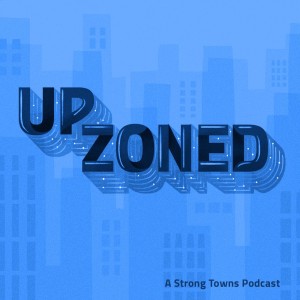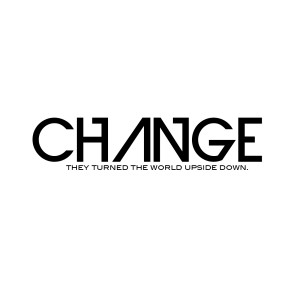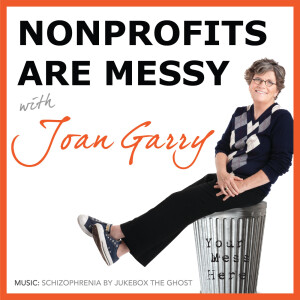
A recent article in The Guardian described the “death spiral” looming for public transit in the United States. Country-wide, the pandemic has resulted in a 90% drop in ridership. This has led to cuts in services—which means even less ridership—and higher fares to make up for lost revenue. Higher fares lead to fewer riders…which means more higher fares, more cuts in services, or both. And so on. You see where this is going.
To save public transit, Congress may have to fill a $32 billion funding gap...but no funding package currently exists. Transportation advocates also warn that cuts in services exacerbate a “mobility crisis” that already existed for our cities’ most vulnerable people.
This article prompted a lively conversation on this week’s episode of Upzoned, with host Abby Kinney—an urban planner in Kansas City—and cohost Chuck Marohn, president of Strong Towns. Abby and Chuck discuss why the mortal danger facing public transit was always going to be an option when you overlay a dysfunctional transportation system on a dysfunctional land-use pattern, why public transit is a long-term investment in people, and how the U.S. subsidizes automobiles too. They also discuss whether making the “compassionate argument” may unintentionally undermine transit advocates’ case for public transportation.
Additional Show Notes-
Public transit faces 'death spiral' without $32bn injection from Congress, by Miranda Bryant
-
Abby Kinney (Twitter)
-
Charles Marohn (Twitter)
-
Gould Evans Studio for City Design
-
Theme Music by Kemet the Phantom (Soundcloud)
-
Some recent Strong Towns articles on public transit
-
“The Only Thing More Expensive Than Saving Transit is Not Saving Transit,” by Daniel Herriges
-
“In Transportation Costs, ‘It's the System, Stupid,’” by Daniel Herriges
-
“What the Left Gets Wrong about Public Transportation” (Podcast)
-
“Transit’s Chicken & Egg Fallacy,” by Chuck Marohn
-
“Why Development-Oriented Transit is better than Transit-Oriented Development,” by Rachel Quednau
-
More Episodes
Corporate Investors Own Nearly Half of This City’s Residential Property
 2022-05-25
2022-05-25
Philadelphia Is Launching the First Public Bank Owned by a City
 2022-05-18
2022-05-18
Are Cars Here to Stay?
 2022-05-04
2022-05-04
Process Versus Visible Outcomes
 2022-04-27
2022-04-27
Can We Build Strong Towns from Scratch in the 21st Century?
 2022-04-20
2022-04-20
Who Should Be Able to Veto New Housing Production?
 2022-04-13
2022-04-13
Our Fragile System Runs on Cheap Oil
 2022-03-16
2022-03-16
Can a Houstonian Approach to Homelessness Work in L.A.?
 2022-03-09
2022-03-09
Blaming Drivers for the Mistakes of Traffic Engineers
 2022-02-23
2022-02-23
Free (Rural) Land: Any Takers?
 2022-02-16
2022-02-16
Where Does Cohousing Fit in the Housing Ecosystem?
 2022-02-09
2022-02-09
Can Corporate Campuses Urbanize the Suburban Experience?
 2022-02-02
2022-02-02
No Insurance for Wildfire-Prone California
 2022-01-26
2022-01-26
Weaponizing Historic Preservation
 2022-01-19
2022-01-19
Population Growth and the Housing Crisis
 2022-01-12
2022-01-12
Disaster Relief for America‘s Housing Crisis
 2021-12-15
2021-12-15
The Infrastructure Bill, Racial Equity, and Local Government: How Should the Money Be Spent?
 2021-11-24
2021-11-24
The ”Bikelash” Phenomenon (and Why It Shouldn‘t Scare Local Leaders)
 2021-11-17
2021-11-17
”Zillow Offers”...Homes to Investors, Not Homeowners
 2021-11-10
2021-11-10
The Gathering ”Swarm” of Small-Scale Developers
 2021-11-03
2021-11-03
Create your
podcast in
minutes
- Full-featured podcast site
- Unlimited storage and bandwidth
- Comprehensive podcast stats
- Distribute to Apple Podcasts, Spotify, and more
- Make money with your podcast
It is Free
You may also like

The Business Of


Change Church Podcast


Nonprofits Are Messy: Lessons in Leadership | Fundraising | Board Development | Communications


Room to Think


Giving Done Right


Nonprofit Mastermind Podcast


- Privacy Policy
- Cookie Policy
- Terms of Use
- Consent Preferences
- Copyright © 2015-2024 Podbean.com


 iOS
iOS Android
Android